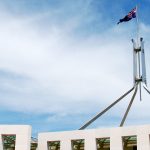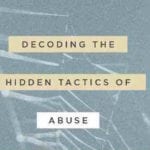Below is a joint response to The Ezekiel Declaration from Murray Campbell and David Ould. Murray serves as Lead Pastor at Mentone Baptist Church, Melbourne and is a member of the TGCA editorial panel. David is Senior Associate Minister St John’s Anglican Cathedral Parramatta and is a writing contributor to this site. The opinions expressed in this article do not reflect TGCA policy but are republished here as the thoughtful reflections of two valued members of the TGCA community.
Over the past week a letter has been promoted and circulated around many churches and religious organisations. The Ezekiel Declaration (“The Declaration”) is addressed to Prime Minister Scott Morrison and outlines concerns over a potential “vaccine passport” that would be required for church attendance. The letter has now received 2,000+ signatures from religious leaders from across Australia, and for that reason alone, is gaining much attention. For every signatory there are certainly many more Christian leaders who have not signed their names. Still, 2,000+ names (and the organisations that they represent) is a significant number.
We are in robust agreement with the authors of the Declaration that ‘conscience should never be coerced.’
In some respects there are a number of clear core statements in the Declaration that we (David Ould and Murray Campbell) would want to support. We strongly agree that there is a serious question to be asked about “vaccine passports”, particularly when they impact upon church attendance. We are also in robust agreement with the authors of the Declaration that “conscience should never be coerced.”
Nevertheless, we have declined to sign our names, or add our support, to this manifesto. While we share some of the concerns raised in The Ezekiel Declaration, we are unable in good conscience to align ourselves with other aspects and its overall tone and content.
Our purpose here is to explain the reasons why we have not signed The Ezekiel Declaration, and to also caution others against doing so. While we respect how some religious leaders have and will wish to affirm this document and continue to respect those leaders as individuals, we encourage people to think through the issues that we raise here before adding their endorsement to what we consider to be a confused and ultimately unhelpful document.
A Combative Tone
First, the tone of the letter is combative rather than cooperative.
Both the title and subtitle suggests a posture of superiority and even spiritual smugness: “The Ezekiel Declaration” and “Watchmen, it’s time to speak.”
This seems to be inflammatory language that does not accurately represent the current situation.
Really? Are the authors claiming a prophetic word or to be able to pronounce divine judgment on those drafting COVID policies? This rhetoric continues throughout the letter. For example, the authors refer to “medical apartheid” and “the dangerous precipice of a therapeutic totalitarianism.” This seems to be inflammatory language that does not accurately represent the current situation.
Straight away the letter therefore sets up an “us versus them”: us churches against a bullish and autocratic Government. But at this point in time, the situation in Australia is far more akin to Daniel 1 than Daniel 6. We can still appeal for a fair hearing and may still persuade. Our lives are not being threatened for dissent; nor are we left without any recourse but civil disobedience.
We understand the issues at stake and we share concerns about any proposed vaccine passport, but the tone of this letter communicates an angry sermon rather than bridge-building.
We are also concerned that The Declaration is unnecessarily political. We are entirely convinced that there is a place for responsible engagement with political parties (sometimes cooperating, at other times challenging) but there is a genuine danger in being seen to be overly partisan. The Declaration has already been leveraged by one political party for political purposes and this does nothing to allay fears that The Declaration is first and foremost a political document that reflects a particular political position.
An Unbalanced Response
Second, the letter nowhere encourages people to be vaccinated and fails to affirm the safety and efficacy of the available COVID-19 vaccines.
There is only one statement in The Declaration that accepts vaccination, but nothing in favour of it. And even this statement is partnered with a word of dissent,
While some individuals will receive the vaccination with thanks, others may have good and informed reasons for declining.
The Declaration does not define what these “good and informed reasons” are. It then proceeds to misuse the words of the Federal Health Minister in February 2021 in support of refraining from being vaccinated:
One such reason [for declining vaccination] is highlighted in the statement of the health minister Greg Hunt:
“The world is engaged in the largest clinical trial, the largest global vaccination trial ever, and we will have enormous amounts of data.”
When we read the linked transcript of the interview we see the Minister endorsing the vaccination process, not casting aspersions upon it. He states,
One of the things that is absolutely fundamental to confidence is the belief in safety. And the essence of safety is a full and thorough assessment … that’s ultimately about making sure we have the maximum take-up in Australia, and above all else, safety, safety, safety. That’s our duty. But it also leads to confidence and take-up.
Hunt’s argument is not that the vaccine is unsafe … the approval process is there to provide confidence in it
Hunt’s argument is not that the vaccine is unsafe. On the contrary, he is stating that the approval process for the vaccine is there to provide confidence in it; confidence in the face of the uncertainty that some feel—the same uncertainty that the Declaration promotes.
We see a similar failure to handle sources responsibly in the reference to a CDC study when discussing the efficacy of vaccines. The Declaration states, having referenced the study, “it is evident that vaccines do not prevent infection.” This is, at best, misguided language. Nobody claims that the vaccines prevent infection, simply that they greatly reduce the rate of infection and the negative outcomes from those infections. Further, the report that is linked in the Declaration to support this claim closes with these words:
While numerous studies have shown that the vaccines don’t work as well against the delta variant as they did against other strains, health officials say they are still highly effective, especially in protecting against severe illness and death. Roughly 97% of new hospitalizations and 99.5% of deaths in the U.S. are among unvaccinated individuals, U.S. health officials repeated this week.
The CDC also said the data has limitations. The agency noted that as population-level vaccination coverage increases, vaccinated persons are likely to represent a larger proportion of COVID cases. Additionally, asymptomatic breakthrough infections might be underrepresented because of detection bias, the agency said.
The CDC also said the report is “insufficient” to draw conclusions about the effectiveness of the authorised vaccines against COVID, including the delta variant, during this outbreak.
In recent months, data coming from overseas (and now, locally) is demonstrating the substantial effectiveness of these vaccines in lowering the risk of people being seriously ill and dying with COVID-19—a benefit that far outweighs the very small recorded risk of vaccine side-effects.
A Duty of Care
Christian leaders have an obligation to quote people in context and to represent their position with fairness. Christian leaders also have a duty of care to listen to experts, to convey accurate information, and to refer people to their local GP, not to publicly undermine health advice. We have documented how, at two critical points, in its argument The Declaration does not do this.
Christian leaders have a duty of care to listen to experts and convey accurate information … not to publicly undermine health advice.
We appreciate that some Australians are hesitant to take the vaccine at this point in time and are sympathetic towards them. Our intention isn’t to “force” anyone’s conscience. We also understand and affirm that there are valid medical reasons why a limited number of Australians cannot use these vaccines. We also understand that as time progresses our understanding of COVID-19 and the best ways to fight against it, will improve—and perhaps even change tack. Our concern here is that The Ezekiel Declaration offers no encouragement and no positive information about COVID-19 vaccines. At best this is disappointing. At worst it wilfully misleads people and may undermine their willingness to receive the vaccination which—when the relative risks are properly assessed—is the best decision for most of our population .
Finally, we note that it is now well-established that widespread vaccination is the single greatest accelerator for achieving an opening up of our communities and a more “normal” life—the very thing that The Declaration strives for.
Confusion and Conflation
Third, the arguments are a kaleidoscope of confusion, conflation, and misrepresentation.
We have already noted above some serious errors in the way The Declaration handles other material. More generally, it seems to us that there is an unhelpful and unclear mixture of different arguments being made. Had The Declaration not contained much of this it would be more useful. Instead the authors have chosen to roll in additional arguments that do little to support their case, especially when (as we have shown) their arguments are based on poor use of external material.
The authors have chosen to roll in additional arguments that do little to support their case.
One more example is helpful.
The authors spend much time addressing the issue of mental health. While this is pertinent to discussions surrounding the pandemic—including those concerning the value of ongoing lockdowns—it isn’t directly relevant to the question of mandatory vaccine passports for churches.
Our hearts ache for those who are overwhelmed and exhausted mentally and emotionally. As pastors we tend to congregation members who are suffering and struggling because of the pandemic. The growing strain is palpable and we too are concerned at the emotional, social, economic, and spiritual toll that this is taking on millions of lives. We are pleased to see that politicians, doctors and the media are beginning to address these issues with increasing urgency. Yet these matters are separate from the question of vaccine passports and whether the government should introduce, and even mandate, them for public worship services. To conflate them as the Declaration does is to confuse the argument.
The Declaration presents itself as a call against mandated vaccination for attendance at worship service. In reality, it also attempts to argue against lockdowns and repeats discredited anti-vaccination arguments with questionable use of primary sources. By rolling-in these separate issues it presents a far less cohesive argument and makes it more difficult for the wider Christian community to agree with it.
Dubious Company
Fourth, the list of signatories raises some concerns in a number of ways. We are uncomfortable signing our names to an alliance of “Christian leaders” when the list includes members of a non-Christian sect and numerous “churches” that are considered fringe, if not heterodox, any other day of the week.
We have been personally contacted by those who tell us their names have appeared as signatories without their action or consent.
In addition we have been personally contacted by those who tell us their names have appeared as signatories on The Declaration without their action or consent.* We have also had correspondence with those whose professional background includes the investigation of data integrity and they have raised concerns with some elements of the data as it is presented. None of this is to suggest in any way that the writers and promoters of The Declaration have deliberately falsified the signatories. Yet there remain concerns about how some of the signatures have been recorded.
Obscuring Hope
Fifth, instead of offering clear Gospel hope to our country, this letter creates suspicion and suggests that Christians are more interested in their own freedom rather than the common good.
At a time when Australia desperately needs to hear and see the beauty of God’s good news, this letter fails to deliver. Despite the closing lines affirming the gospel, the message given is not one filled with grace and hope, but rather one of frustration, unbelief, and defiance that obscures, and even contradicts the gospel.
Gospel and biblical fidelity will always be a concern with any declaration made by Christian leaders, but particularly one styling itself after the “watchman” of Ezekiel. In Ezekiel 33 we learn what the watchman’s role is:
The word of the LORD came to me: 2 “Son of man, speak to your people and say to them: ‘When I bring the sword against a land, and the people of the land choose one of their men and make him their watchman, 3 and he sees the sword coming against the land and blows the trumpet to warn the people, 4 then if anyone hears the trumpet but does not heed the warning and the sword comes and takes their life, their blood will be on their own head. 5 Since they heard the sound of the trumpet but did not heed the warning, their blood will be on their own head. If they had heeded the warning, they would have saved themselves. 6 But if the watchman sees the sword coming and does not blow the trumpet to warn the people and the sword comes and takes someone’s life, that person’s life will be taken because of their sin, but I will hold the watchman accountable for their blood.’
(Ezekiel 33:1-6 )
In the context of the writing of Ezekiel—the impending judgment of Judah under God’s hand by the means of Babylon—the watchman’s role is clear; he calls the people to repentance for their sin in the face of judgment (a judgment signalled as imminent by the blowing of a trumpet). In other words, it is the role of any gospel minister to warn of the coming judgment and urge people to find their refuge in Christ.
This document does not do that. By using the title of “Ezekiel Declaration” it confuses that great eternal moment of decision with a lesser, albeit significant, matter before the churches. It presents vaccination for church attendance (and other general questions to do with vaccination and lockdowns) as matters on a scale with the Babylonian invasion and destruction of God’s people. The immediate remedy it suggests is not the gospel of Jesus. The Declaration communicates a defiance of God-ordained authority rather than a trusting submission to the Lord as we engage with a difficult moment in our common life. By using the language of the “watchman” it also labels those who do not agree as failed watchmen who have neglected their solemn duties as stewards of the gospel. We are firmly convinced there is a much higher threshold for this charge of abandoning the gospel than disagreement with The Declaration. It is deeply divisive.
Why We Can’t Sign the Ezekiel Declaration
There is a genuine issue relating to vaccine passports—both in general, and, specifically, when tied to church attendance. We will be extremely concerned if Australian Governments decide that religious organisations must mandate vaccination for attendees and participants in public worship services and other religious meetings. There may yet be a need to respectfully make our case and even courageously refuse to place a limit on who may gather together with the people of God. But we are not at that moment yet, nor has any such potential restriction even been announced. Our concern is that The Ezekiel Declaration neither provides a productive pattern by which opposition should happen if required, nor increases the opportunity for productive engagement with State and Federal Governments before then.
We will be extremely concerned if Australian Governments decide that religious organisations must mandate vaccination for attendees.
Finally a personal word. We have come to publish this response with some hesitancy. We are both known, perhaps even notorious, for standing for gospel purity within our own denominations. That has sometimes come at personal cost. Nor have we been shy when it comes to public engagement with the authorities, be they media, governmental or other. Where necessary we have taken the opportunity to speak of Jesus in the public sphere—especially when his word is not well-received. We respectfully do not believe that the charge of “selling-out” or cowardice can be levelled against us. We are also acutely aware that many of those we are effectively criticising here are our natural allies in many of these struggles. One of us has spoken on your platforms and been featured on your websites. We have spoken plainly about “culture wars” and the like, and will continue to do so. We are fellow evangelicals.
Despite this we felt the need to write. We ask that the above be received as it was intended; “wounds from a friend that can be trusted” (Prov 27:6). We long for gospel unity with all our brethren and offer this letter in that spirit.
To the rest of our readers we ask you to consider whether adding your endorsement to The Ezekiel Declaration is the wisest choice at this moment—or even if you ought to now ask for it to be removed. We believe that The Ezekiel Declaration is counter productive, unnecessarily political, confused in its argumentation and ultimately divisive at a time when the church should be known for its united loyalty to Jesus and his gospel, expressed in an appropriate engagement with the world.
First published at murraycampbell.net and davidould.net
Please note, an earlier version of this article was worded in such a way that it might have been understood to say that The Ezekiel Declaration (ED) offered an endorsement of Reignite Democracy Australia (RDA). No such endorsement of RDA by ED has been made, although RDA has endorsed ED (which was the original intended meaning of the statement in this post).
* In correspondence subsequent to the publication of this article, Ben Davis from Cauldron Pool has assured us that CP will act promptly to remove the names of anyone who does not wish their name to remain on the Ezekiel Declaration.




















